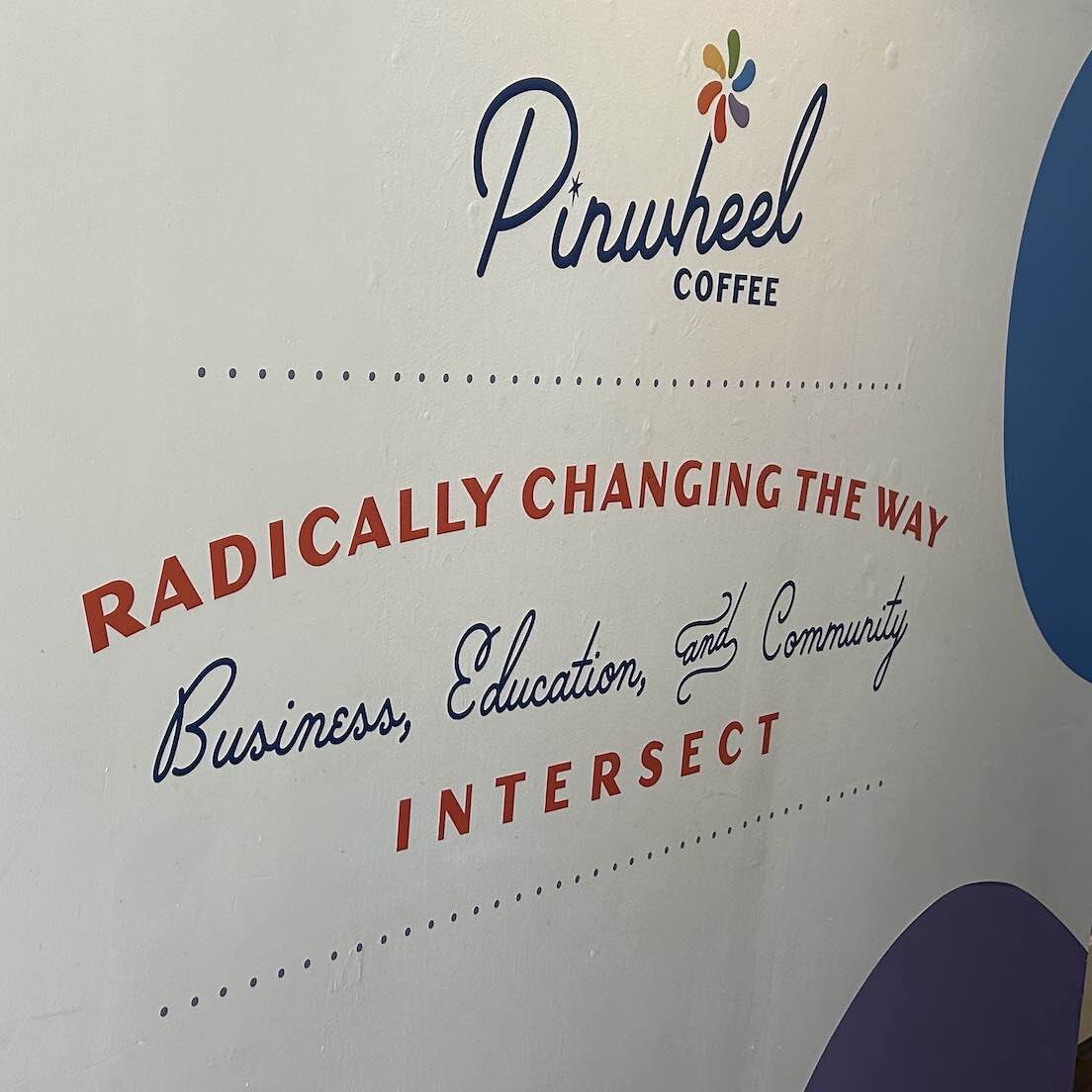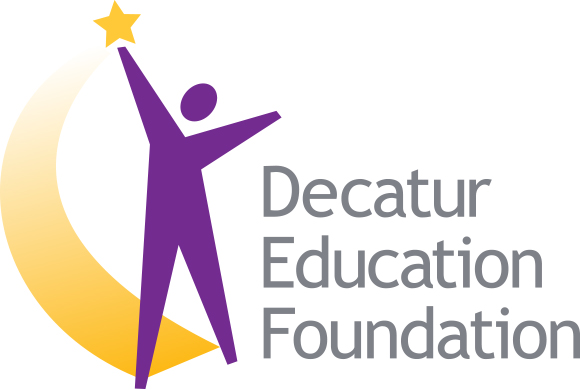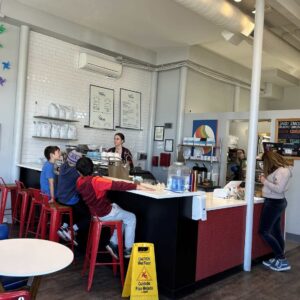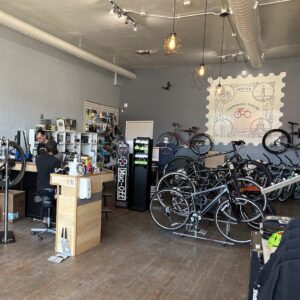
Radical Trust
Considering Radical Change
Pinwheel Coffee in Denver is a groovy, independent coffee shop you might find in any hip neighborhood –delicious espresso drinks, good vibes and free wifi. While sipping your coffee you might wonder about their motto, painted on the wall “Radically Changing the Way Business, Education, and Community Intersect.”
Pinwheel Coffee is not only a coffee shop in Denver but part of an educational ecosystem called Embark Education which includes the cafe, a bike shop, a micro middle school with 30 students, and an adult residency for learner-centered educators. Embark Education describes itself as a “learner-centered organization built on the foundation of radical trust and shifting mindsets about what education can be”.
I met one of the Embark educators when I took part in the Education Reimagined Learning Lab which focuses on how “learner-centered education can address today’s most pressing education challenges.” I just knew that I had to include this school/bike shop/coffee shop as one of my learning destinations during my year of inquiry for Decatur Education Foundation. This stop allowed me to meet with students and administrators who demonstrated how students learn in this model and what goes into structuring this unique learning environment.
A Different Kind of Homeroom
I arrived around 9am on a Thursday and entered a classroom space located across the street from Pinwheel. I found Jimmy, one of Embark’s educators, doing check-ins with his group of students and joined the circle to listen in. These “temperature checks” with students are a best practice in learner-centered environments and acknowledge that we all have lives outside of our school time that impact how we start the day. Jimmy facilitated with an easy manner and as he checked in with each student, he also asked other students to repeat back what they were hearing, reinforcing the skill of active listening. It was clear that the students had a very comfortable relationship with Jimmy and each other and that there was a diversity of learning styles, personalities and communication styles among the group. They moved on to talk about what they would be working on and what they needed. Some got permission to work in the cafe, while others were headed to group work.
Radical Trust in Practice
I then met Karissa, another Embark educator who was working with a group of 12-15 students on a unit around Diversity, Equity and Inclusion. The students were working on a pitch they would be making to other students, teachers and the businesses about projects that would make their spaces more inclusive. I asked them to practice their pitches on me and learned one group was working on alternative seating for students who needed to move around, one group was trying to make the handicapped-accessible bathroom more inviting, and a third group was researching how to develop an inclusive process for investing the money they had raised. The students were confident and interacted easily across differences, seeking help from Karissa as needed.
I spoke with Brian, the head of the school and Meg, who oversees the Embark Ecosystem, which includes the school, the businesses and an adult residency for learner-centered educators. What struck me most was how this idea of “radical trust” played out, since that concept seems very different from how traditional schools operate, especially during the middle school years. Radical trust includes trusting not only the students but the process itself. Students plan their schedule each week based on the work they have and are supported by adults, but not coddled. Trusting the process means that when the students fail to complete an assignment/their work, a learner-centered approach sees that as a valuable learning experience, not one from which a student should be saved.
Changing Perceptions of Middle School
We often view middle school years as something to “get through/endure” rather than the critically formative years they are in moving from childhood to young adulthood. It seems to me that empowering students in the middle years to have agency over their learning is a great opportunity for them to develop the exact skills we will expect them to have as they move through adolescence.
The other central aspect of Embark is the relationship between students and the adults they work with. This includes not only their teachers but also the adult employees of the coffee and bike shop, where students have shop shifts. Starting with radical trust AND having deep and consistent relationships with caring adults is the secret sauce of this unique and exceptional middle school experience. I had the opportunity to chat with some of the students. Olive, an 8th grader, decided to come to Embark, in her words, “because it’s good for people like me who need one-on-one teaching. At a normal public school you don’t have these type of conversations with Karissa (the teacher) and just four of us, and I get to have those types of conversations”. Neurodiverse students worked in a group together and were supported in a seamless way, it was acknowledged but in a matter of fact way that felt very inclusive.
My Takeaways
Of course, this model isn’t easily scalable due to the micro nature of it (just 30 students), and the funding model which provides free tuition due to a big philanthropic investment. What is scalable: a reframing of the middle school years to focus on the essential ingredients of strong relationships and radical trust with adults as learning guides.
Embark, and other schools like it are part of a growing trend of schools that are finding ways to keep pace with the changing needs of our kids. By visiting a variety of alternative educational models during this year of inquiry, we hope to bring new methods and processes that can help every Decatur student succeed.
This Op-Ed piece by David Brooks, published on February 20 in the New York Times, outlines why this is so crucial given the statistics coming out of the pandemic. It gives a salient rationale for completing this year of inquiry to see how we can reimagine education.


